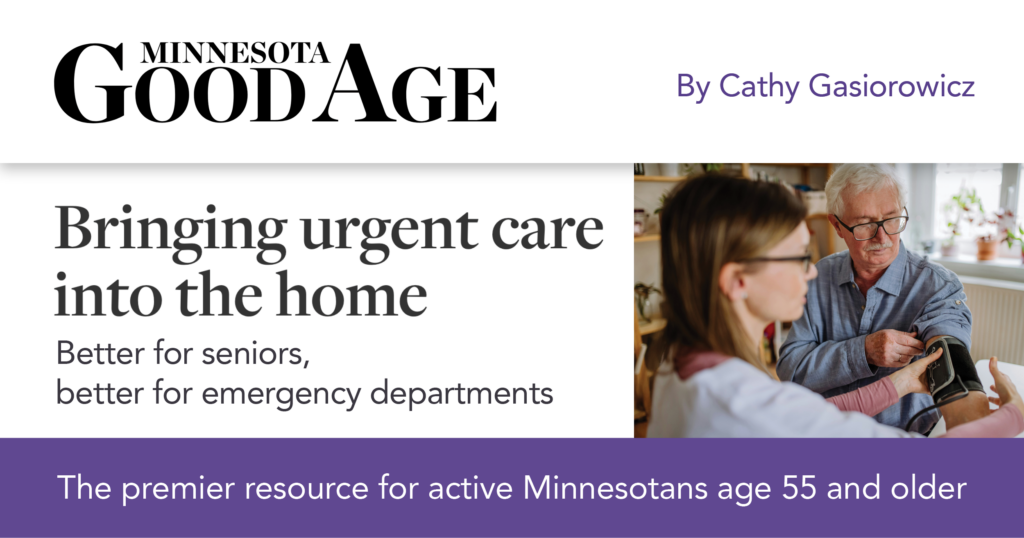
In my experience, older adults tend to get sent to hospital emergency rooms to make sure there’s nothing seriously wrong,” said Leah Castle, RN, BSN, a nurse with Lifespark. “As a Mobile Urgent Responder, I can rule out those non-emergencies in the senior’s home and help them avoid an unnecessary trip to the ER.”
With early intervention, Leah said that it’s possible to diagnose and treat a wide range of medical concerns in the home, such as urinary tract infections (UTI), wounds, diabetes-related neuropathy, hypertension, congestive heart failure (CHF) exacerbation, chronic obstructive pulmonary disease (COPD) complications, fall assessments, pain flare-ups, allergic reactions, gastrointestinal problems, mental health issues, respiratory concerns, and dehydration.
Is Urgent Care in the home better for seniors and emergency departments? We think so. Read on for this article in MN Good Age that explains why…



